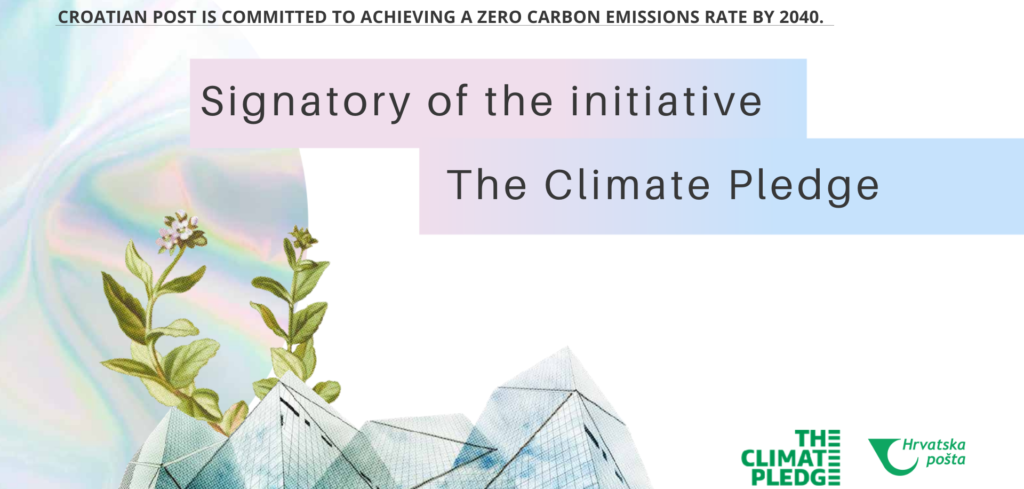National postal operator Croatian Post has joined The Climate Pledge initiative – a collection of companies and organizations founded by Amazon and the environmental services company Global Optimism in 2019 – which has committed to achieving zero carbon emissions by 2040.
This commitment comes as part of its Pošta2022 development strategy, which is implementing the digital transformation of its operations to increase energy efficiency and reduce emissions. In April 2021, the sustainability management strategy ‘Growing Green and Sustainable’ was adopted, which includes green operations, corporate social responsibility and corporate governance.
In addition, Croatian Post has set up charging stations for electric vehicles in Velika Gorica, Zadar and Osijek in Croatia, to lay the foundations for further expansion of its electric vehicle fleet. Currently, it has around 200 electric vehicles in its fleet, which includes 40 electric four-wheelers and almost 30 electric mopeds.
In 2021, a parcel locker network was opened as an alternative delivery channel to reduce emissions. The company pointed out that parcel lockers increase the percentage of deliveries made on the first try, meaning delivery vehicles need to visit fewer locations and produce fewer emissions.
Currently, The Climate Pledge has approximately 300 signatories in 29 countries and includes 51 different sectors such as transportation, aviation, energy, real estate as well as information and communication technologies. Collectively, the signatories of the initiative have been calculated to generate more than HK$24tn (US$3.5tn) in global annual revenue and have 8,000,000 employees.
The signatories of The Climate Pledge initiative agree to regularly measure and report on greenhouse gas emissions. They will implement decarbonization strategies in line with the Paris Agreement through business changes, including efficiency improvements, renewable energy, materials reductions and other carbon emission elimination strategies.
The signatories have also committed to neutralizing any remaining emissions with additional, quantifiable, permanent and socially beneficial offsets to achieve net-zero annual carbon emissions by 2040. Finally, all signatories are to take high-impact science-based actions to combat climate change, through supply chain efficiency, sustainable transportation, circular economy and clean energy.


